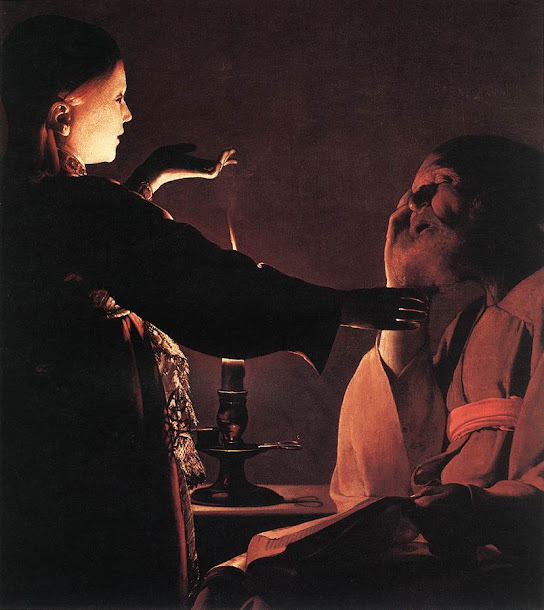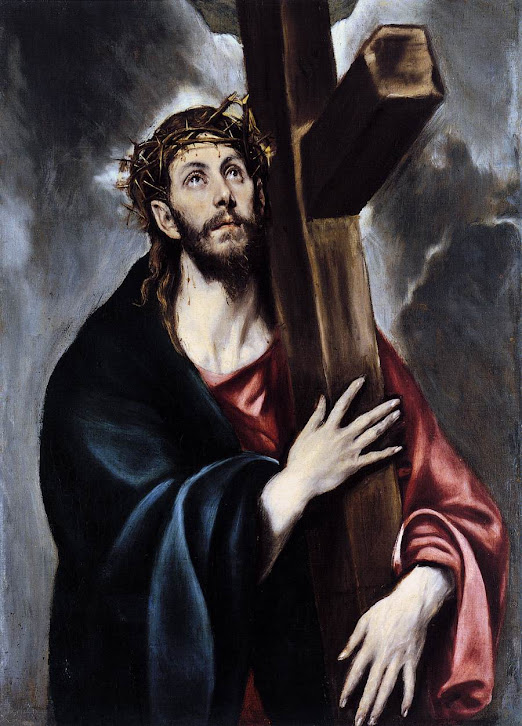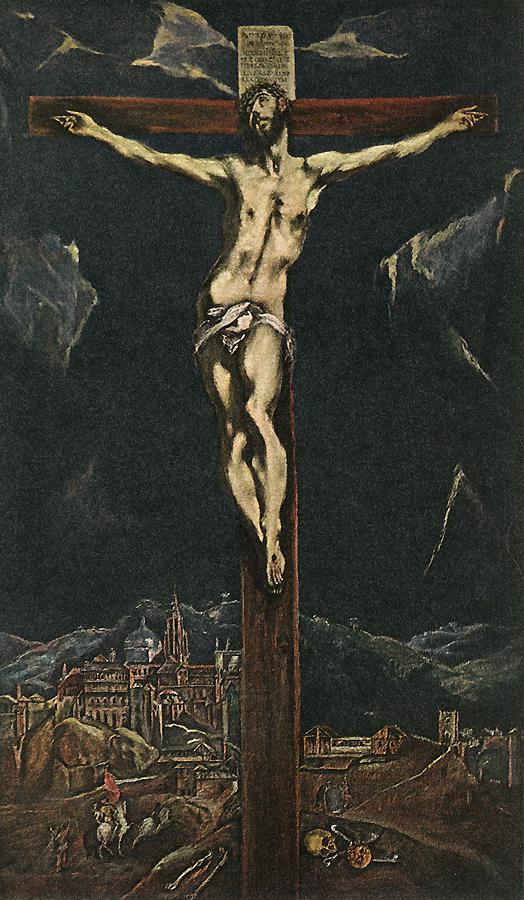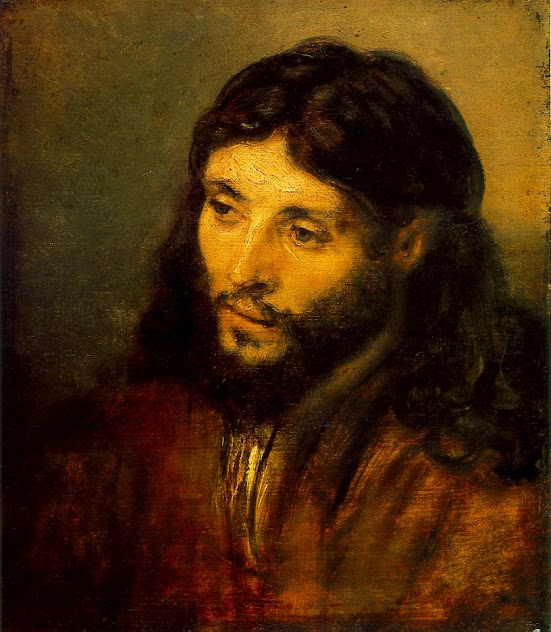I will ask the Father, and he will give you another Helper, to be with you for ever, even the Spirit of truth (John 14:16-17; Gospel).
Readings (Jerusalem Bible: Australia, England & Wales, Ireland, New Zealand, Pakistan, Scotland)
Readings (New American Bible: Philippines, USA)
Gospel: John 14:15-21 (English Standard Version, Anglicised)
Jesus said to his disciples:
“If you love me, you will keep my commandments. And I
will ask the Father, and he will give you another Helper, to be with
you for ever, even the
Spirit of truth, whom the world cannot receive, because it neither sees
him nor knows him. You know him, for he dwells with you and will be in you.
“I will not leave you as orphans; I will come to you. Yet a little while and the world will see me no more, but you will see me. Because I live, you also will live. In that day you will know that I am in my Father, and you in me, and I in you. Whoever has my commandments and keeps them, he it is who loves me. And he who loves me will be loved by my Father, and I will love him and manifest myself to him.”
The Last Supper
El Greco [Web Gallery of Art]
Today's Gospel is taken from the Last Supper Discourse, found only in St John's Gospel. These are the last intimate words of Jesus to the Twelve Apostles before his death on Calvary the next day. He makes this promise to them: I will ask the Father, and he will give you another Helper, to be with you for ever, even the Spirit of truth, whom the world cannot receive, because it neither sees him nor knows him.
The Helper, the Spirit of truth, is the Holy Spirit whom the Father was to send on Pentecost Sunday to guide the Church until the return of Jesus in glory on the Last Day. The Holy Spirit guides us through the Holy Bible, through the teaching of the Church and through the many great teachers He has raised up down the centuries. One of those teachers was the author of the Letter to Diognetus, who lived towards the end of the first century AD and into the second. An extract from it was in the Office of Readings in the Breviary last Wednesday. Here is part of that. I have added emphases.
Christians are indistinguishable from other men either by nationality, language or customs. They do not inhabit separate cities of their own, or speak a strange dialect, or follow some outlandish way of life. Their teaching is not based upon reveries inspired by the curiosity of men. Unlike some other people, they champion no purely human doctrine. With regard to dress, food and manner of life in general, they follow the customs of whatever city they happen to be living in, whether it is Greek or foreign.
And yet there is something extraordinary about their lives. They live in their own countries as though they were only passing through. They play their full role as citizens, but labor under all the disabilities of aliens. Any country can be their homeland, but for them their homeland, wherever it may be, is a foreign country. Like others, they marry and have children, but they do not expose them. They share their meals, but not their wives. They live in the flesh, but they are not governed by the desires of the flesh. They pass their days upon earth, but they are citizens of heaven. Obedient to the laws, they yet live on a level that transcends the law.
It was the upright lives of the followers of Jesus, especially in the area of chastity, that slowly transformed those around them. Countless Christians from every background, young and old, were martyred for their belief in Jesus Christ and, in many cases, out of contempt for their chastity.
I'm writing this on Friday 12 May when the Church honours three martyrs. Pope St Damasus writes of two of them: Nereus and Achilleus the martyrs joined the army and carried out the cruel orders of the tyrant, obeying his will continually out of fear. Then came a miracle of faith. They suddenly gave up their savagery, they were converted, they fled the camp of their evil leader, throwing away their shields, armor, and bloody spears. Professing the faith of Christ, they are happy to witness to its triumph. From these words of Damasus understand what great deeds can be brought about by Christ's glory. The third martyr honoured today is St Pancras, from Syria, who became a Christian when he went to Rome and was beheaded for his faith in Jesus Christ, at the age of 14.
The Letter to Diognetus speaks to today's world, especially in the West. Like others, [Christians] marry and have children, but they do not expose them. Another translation of those last few words reads, but they do not destroy their offspring. The killing of babies in the womb is now legal in most countries, in some jurisdictions right up to the moment of birth. And there are places where children who survive abortion are left to die, allowed by law.
Christians share their meals, but not their wives. In many Western countries now the very concept of family, consisting of husband, wife and children, has been undermined, with divorce becoming more and more common among those who have married, and sexual activity outside of marriage being accepted as normal, usually with no till death to us part involved.
A parody of marriage is now legal and socially accepted in many countries, mostly in the West, and those who oppose 'marriage' between two persons of the same sex are often condemned as 'bigots'. Two generations ago the very idea of such a 'marriage' would have been laughed at.
What Genesis 1:27 teaches us, as does nature itself, is now being rejected more and more: So God created man in his own image, in the image of God he created him; male and female he created them. Legislators, some of them claiming to be 'devout Catholics', approve of the genital mutilation of minors, in some jurisdictions without the consent of their parents, in a vain and tragic effort to change their sex, an impossibility.
Language has been corrupted to bring all of this about. Terms such as 'the gender assigned at birth' instead of the sex of a person being there from the moment of conception, as science teaches us, are being widely used in order to dehumanise us. We are being asked to worship false gods just as Saints Nereus, Achilleus and Pancras were asked to do. They gave their lives for Jesus Christ rather than do that.
Every moment of our life, everything we do, every decision we make, are meant to be informed by our faith in Jesus Christ, the Way, the Truth and the Life, as Jesus described himself in last Sunday's Gospel. We know that he loves us, that he died for us, that he rose again in glory, that he and the Father have sent the Holy Spirit to guide us, that he will come to judge us on the Last Day when everything will be seen clearly.
The description of the life Christians are called to in the letter to Diognetus written 1,800 years ago speaks to today's world, especially the Western world, now a post-Christian world, but a world where the Holy Spirit still can fill us with wisdom and courage to bear witness to Jesus Christ, the Way, the Truth and the Life.
I will finish with two quotations that reflect what the Letter to Diognetus says. One is on the top of the homepage of this blog: Since we are travellers and pilgrims in the world, let us ever ponder on the end of the road, that is of our life, for the end of our roadway is our home (St Columban, 8th sermon).
The other is from the Servant of God Sr Lucia of Fatima OCD which I found in Magnificat - a monthly liturgical publication I can recommend unreservedly - and is a reflection for the Memorial of Our Lady of Fatima, celebrated today as I finish this. Sr Lucia writes: From the moment of our conception, our life continues through time and goes on to eternity, where it will abide. As long as we live on this earth we are pilgrims on the way to heaven, if we keep to the way that God has marked out for us. This is the most important thing in our lives: that we should behave in such a way as to ensure that, when we depart from this world and at the end of time, we shall deserve to hear from the lips of Jesus Christ those consoling words: 'Come, O blessed of my Father, inherit the kingdom prepared for you from the foundation of the world'.
I will ask the Father, and he will give you another Helper, to be with you for ever, even the Spirit of truth.
+++
David Carlin describes what has happened in recent decades in the Western world and in the USA in particular in Logical, but Mad.
Text: If ye love me,
keep my commandments. And I will pray the Father, and he shall
give you another Comforter, that he may abide with you for ever; e’en the Spirit of truth
(John 14:15-17; King James Version).
This is from
today’s Gospel and includes the words of the Communion Antiphon.
Traditional Latin Mass
Fifth Sunday After Easter
The Complete Mass in Latin and English is here. (Adjust the date at the top of that page to 05-14-2023 if necessary).
Epistle: James 1:22-27. Gospel: John 16:23-30.
For if anyone is a hearer of the word and not a doer, he is like a man who looks intently at his natural face in a mirror. For he looks at himself and goes away and at once forgets what he was like. But the one who looks into the perfect law, the law of liberty, and perseveres, being no hearer who forgets but a doer who acts, he will be blessed in his doing (James 1:23-25; Epistle).














